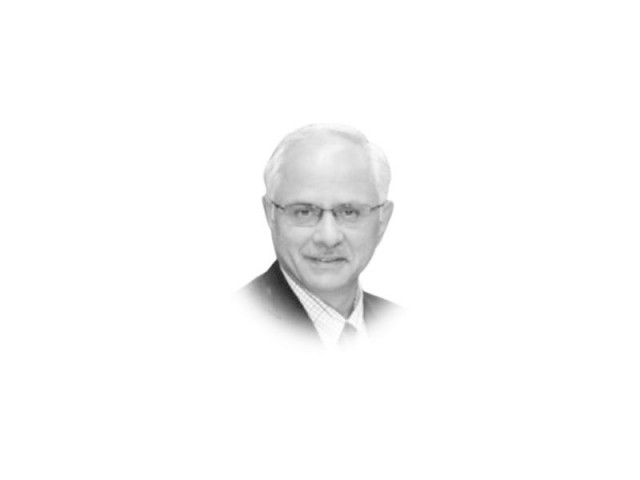Innovating higher education for the next decade
While values must remain our foundation, the tools of education are changing fast - and we must keep pace.

What should a university be in the 21st century? This question - at once philosophical and practical - was at the heart of the International Conference & Expo on Future-Ready Universities, held at the University of Management and Technology (UMT), Lahore, on April 25-26, 2025.
We gathered at a time of demographic urgency and technological upheaval. Pakistan, with nearly 64% of its population under the age of 30, has a fleeting window to reap the dividends of its youth bulge. Yet our higher education institutions remain stuck in outdated models - still chasing prestige through infrastructure and image rather than impact, and still measuring success in enrollments and degrees rather than outcomes and innovation. This conference was a strong reminder: we need to take bold and quick action to change our universities for a very different future ahead.
The conference brought together powerful voices from Pakistan and abroad - each offering not just critique, but direction. Professor David Palfreyman of Oxford opened the conversation with a candid appraisal of the competing roles that modern universities juggle. He asked: are we truth-seeking institutions, economic engines or market-driven enterprises? In trying to be everything, he warned, universities risk becoming directionless. For Pakistan, where universities often mimic global trends without context, the challenge is even sharper. We must define what kind of university we want - not by default, but by design.
Dr Nishat Riaz, who leads the Malala Fund in Pakistan, reminded us that universities should not only teach skills but also help build strong values and character. She advised us to stop focusing so much on fancy buildings or rankings and instead look at how well universities include different people, act with honesty and make a real difference. To truly help society, universities need to welcome diversity, support those who are often left out, and offer education that not only helps students get jobs but also become better citizens. She gave special attention to making future-ready universities in Pakistan more friendly and accessible for girls, so they feel safe, included, and encouraged to lead.
While values must remain our foundation, the tools of education are changing fast - and we must keep pace. In his keynote address, Dr Shaukat Ali Brah outlined how artificial intelligence, immersive technologies and hybrid models are reshaping global education. He painted a picture of a future where learners don't just attend lectures but experience knowledge - through virtual reality, data-driven personalisation, and collaborative, interdisciplinary environments.
In this new landscape, degrees give way to micro-credentials, and one-time study is replaced by lifelong learning. Faculty roles, too, are transforming: they are no longer just lecturers but designers of learning experiences, mentors, and facilitators of critical thinking.
Perhaps the most urgent voice at the conference was that of Dr Atta-ur-Rahman, one of Pakistan's most respected scientists and a former Chair of the Higher Education Commission (HEC). His message was unflinching: Pakistan is being left behind in the global race for scientific and technological leadership. He shared striking examples from across the world - AI-powered drug discovery, real-time translation technologies and breakthroughs in protein folding - that are revolutionising fields from healthcare to education. While other nations invest heavily in frontier research, Pakistan's spending on R&D remains dangerously low.
Dr Rahman called for massive investment in knowledge infrastructure, including the establishment of high-calibre research centres in AI, biotechnology and nano-science. He stressed the urgency of reforming university governance to reward innovation, integrity and merit. Without courageous leadership and policy action, he warned, Pakistan risks not only falling behind, but becoming irrelevant in the knowledge economy.
When we look at all the voices and ideas shared at the conference, one message becomes clear: Pakistan's universities don't just need small changes - they need a complete transformation.
We must move away from old-fashioned, one-size-fits-all teaching methods and build new ways of learning that are active, flexible, and designed around the needs of students. Technology must be used to improve - not replace - human connection in education. Our universities must be smart in how they use data, open in how they make decisions, and fast in how they respond to change. Inclusion and sustainability should no longer be add-ons - they must become the core of what makes a university excellent.
In today's global world, Pakistani universities must prepare students not just for local success, but for global relevance - while still solving the real challenges at home.
This conference was not just an event. It was a turning point. If we wait too long, we will miss the greatest chance our country has ever had: a young generation full of dreams, creativity and potential. They deserve universities that help them shine - not hold them back.
So let us change how we measure progress. Not by the size of our buildings, but by the strength of our ideas. Not by the number of graduates, but by how well they lead, innovate, and serve others.















COMMENTS (2)
Comments are moderated and generally will be posted if they are on-topic and not abusive.
For more information, please see our Comments FAQ